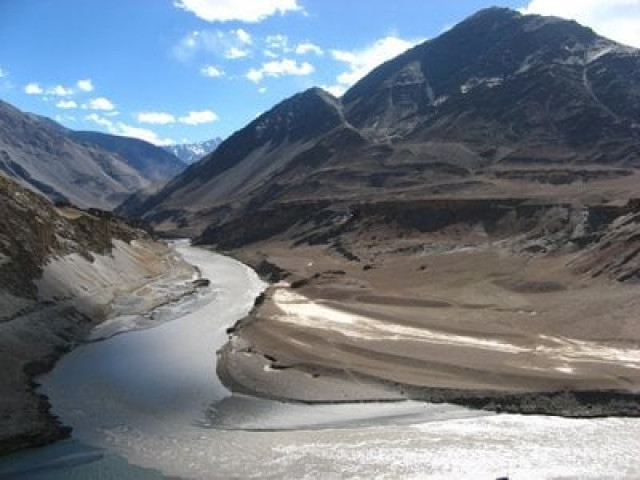Irrigation dept partly blames Irsa for shortage
The Sindh irrigation and power department has released a statement explaining its position.

According to the department’s spokesman, Sindh’s water shortage has been largely overcome. However, in a few areas such as the Warah, Rice and the north-west canal (NWC), they were supplied water very late due because the pond level of the Sukkur Barrage was low, a spokesman explained.
The main reason for the shortage is that during the current kharif season, Sindh received water in the canal system very late because of low flow in the river. Normally, there is some delay in the harvest as some areas plant in the early kharif season, some during the middle and some later in the season. This year, since a full water supply was received very late, cumulative demand was generated, the spokesman said. He also held Irsa responsible for the situation in Sindh. It was anticipated at the Irsa advisory committee meeting on March 31 that there would be an 18 per cent shortage during the early kharif season (April 1 to June 10) and a 12 per cent shortage during the late kharif season (June 11 to September 30). “Irsa claimed that this will be shared by the provinces according to their allocations as per the second paragraph of the Water Accord 1991.” But because Irsa was managing the water, Sindh did not get its proper share and faced more shortages from April 1 to June 30 compared to other provinces, he claimed.
However, Sindh was given the full supply in July, he claimed. From April to June, although there was plenty of water in the river systems, Irsa, despite Sindh’s requests, did not release water from the Jhelum and Chenab rivers. Instead of supplying water timely to Sindh from the two rivers, Irsa filled up the Mangla Dam and supplied more water to other provinces.
Due to this, Sindh received water only when supplies in the Indus and Kabul rivers improved, the department said.
River water supplies have now improved and it is likely that the water shortage in some areas of Sindh will completely end, the spokesman concluded.
Published in The Express Tribune, July 24th, 2010.



















COMMENTS
Comments are moderated and generally will be posted if they are on-topic and not abusive.
For more information, please see our Comments FAQ